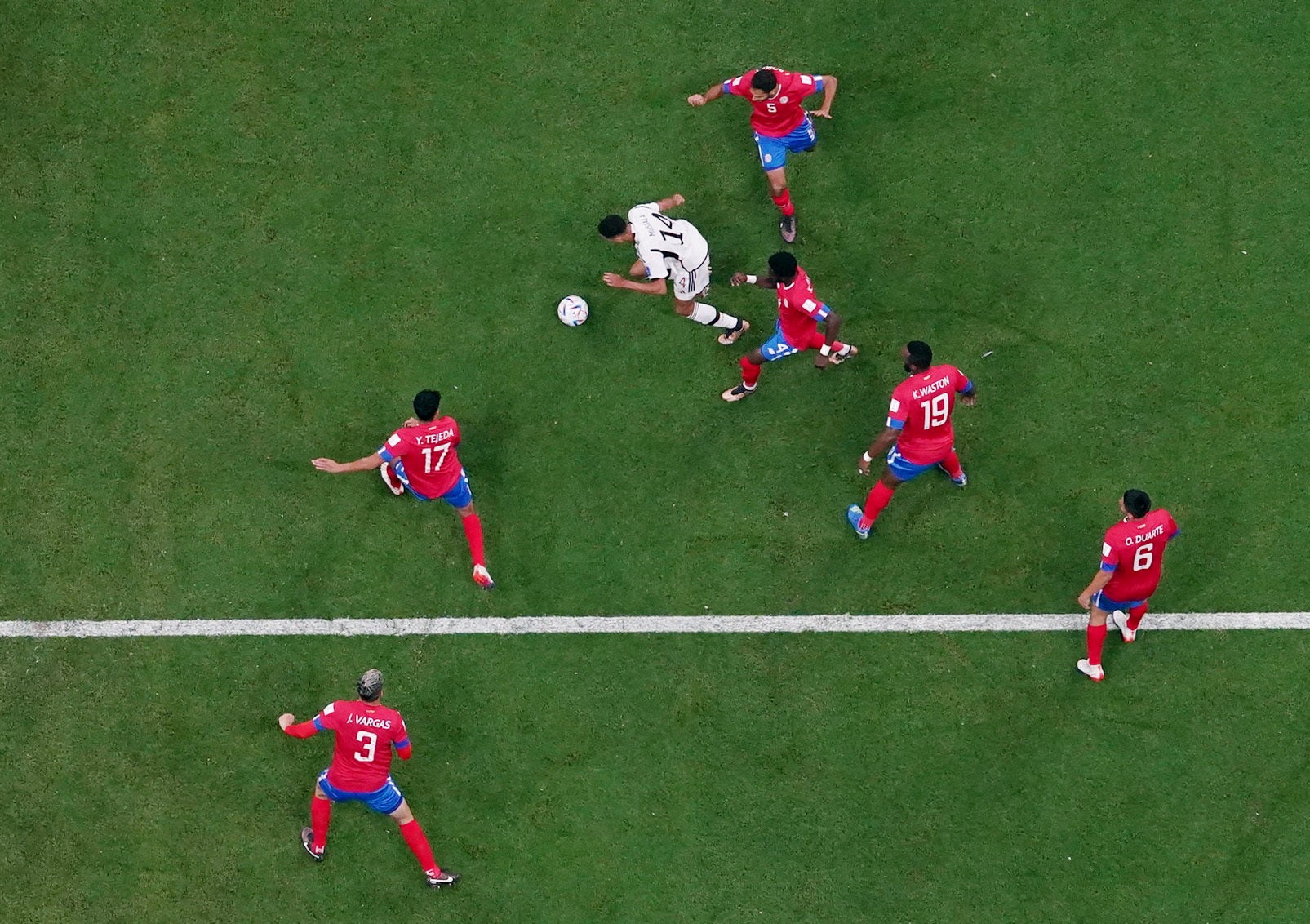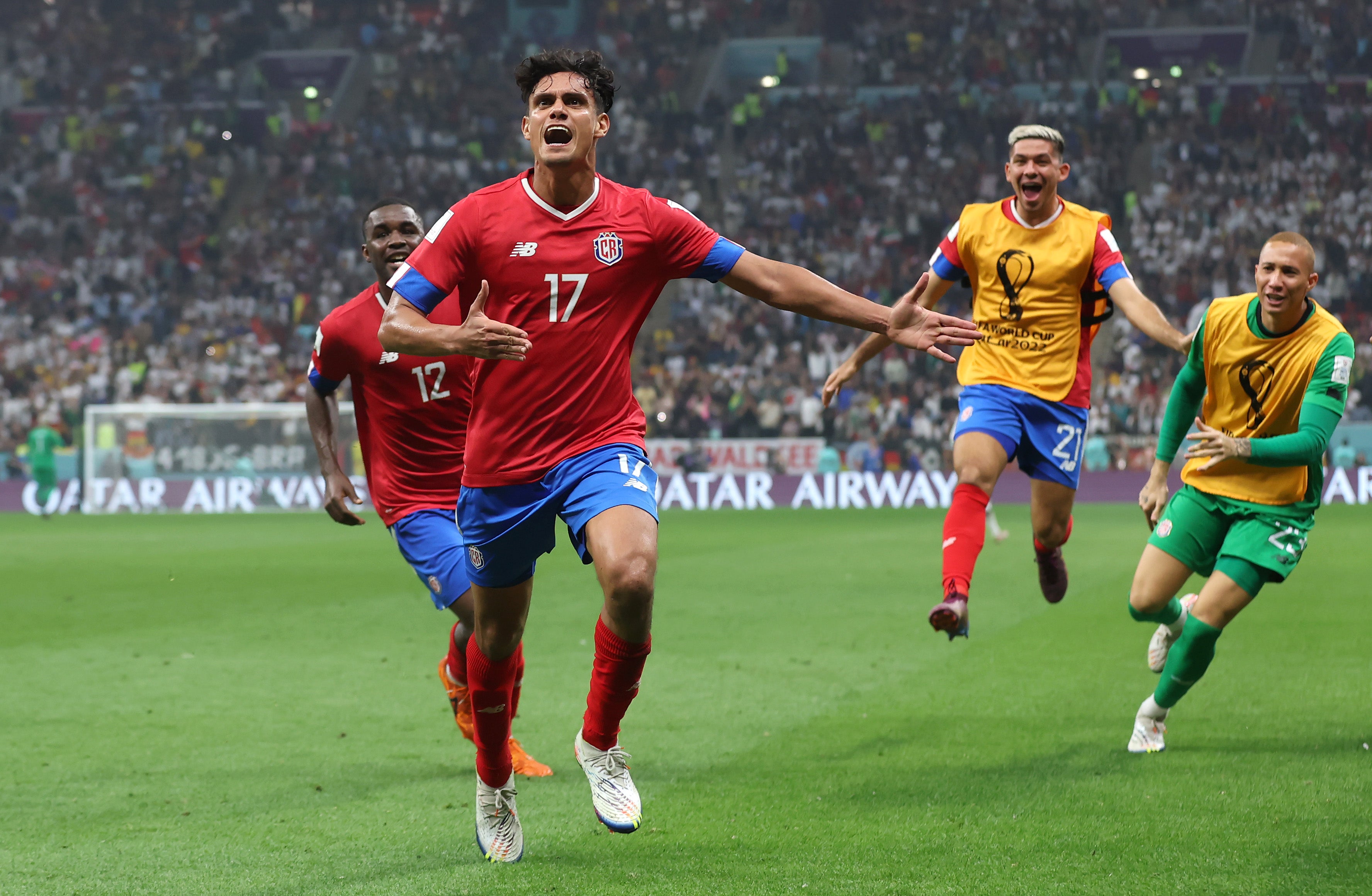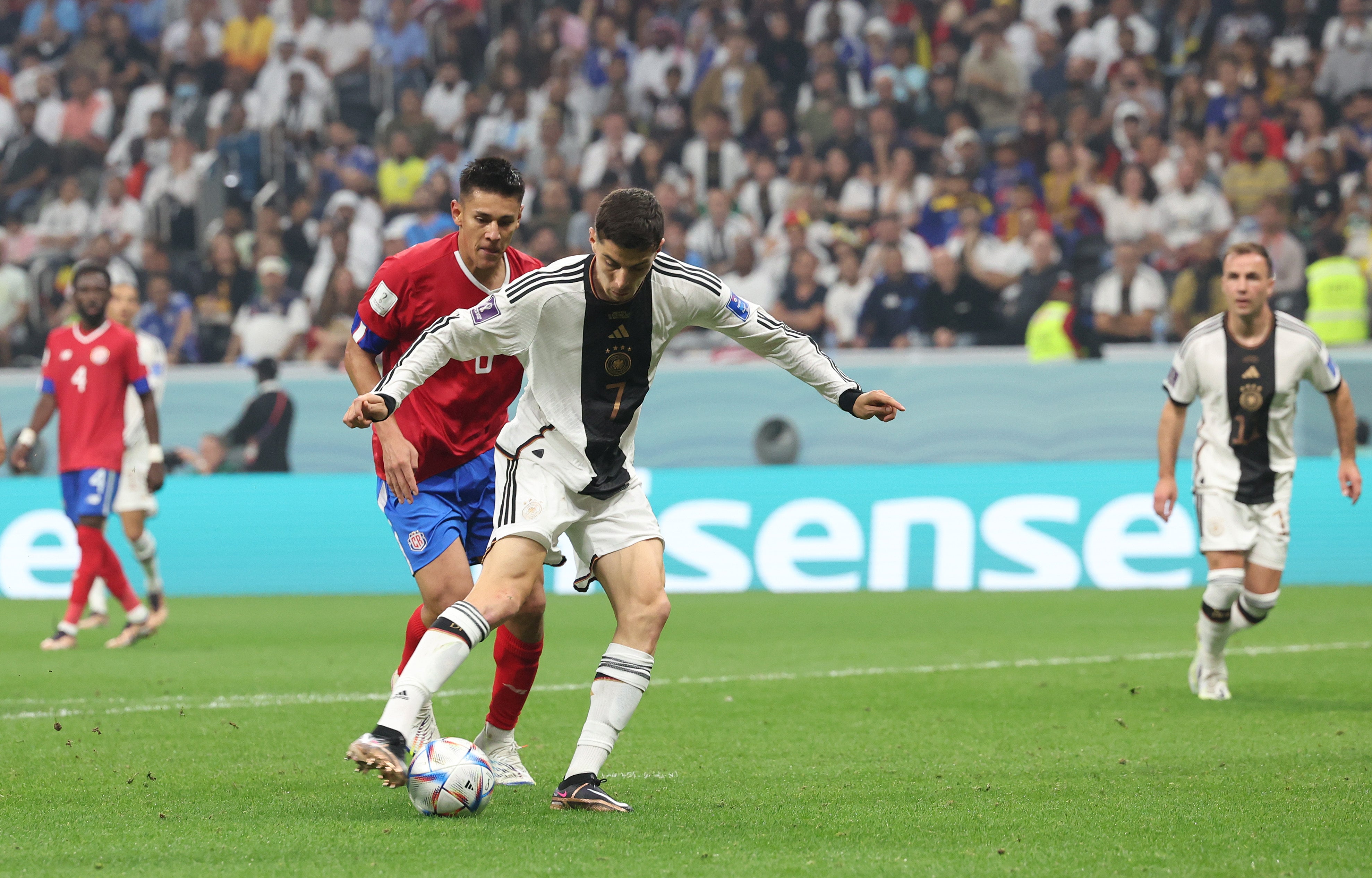
The team sheet suggested that Jamal Musiala was lining up as Germany’s No 10, behind Thomas Muller, ahead of Ilkay Gundogan and Leon Goretzka, and between Serge Gnabry and Leroy Sane. Alternatively, coach Hansi Flick could have simply written Musiala’s name six times.
For the 19-year-old, with his nation needing him to turn up perhaps above all others in this team, turned up instead of them. And he decided to turn up on the left, on the right, through the middle, and from deep.
In an ideal situation and the kind in which Germany usually find themselves, such a responsibility would not fall on such young shoulders – not yet broadened as they will be by the time the 2026 World Cup arrives in the US, Canada and Mexico. But this edition of the tournament does not represent an ideal situation, and this must-win clash with Costa Rica was far from the kind in which Germany usually find themselves. So, step forward Jamal Musiala; step up, step left, step right, step on every blade of grass in sight.
For 45 minutes, Flick’s side briefly looked a team transformed – invigorated and insatiable in pursuit of the three points that would take them into the last 16 in Qatar, but only if coupled with a Spanish victory over Japan, who shocked Germany a week ago.
And central to it all, in a figurative sense that does not reflect his actual ubiquity on the pitch, was Musiala.
The Bayern Munich midfielder was, of course, invigorated and insatiable, though he himself required no transformation, given he had been one of Germany’s few proud performers across their opening two matches.
And within seconds of this Group E encounter beginning, it was apparent how integral Musiala would be to his side’s success. Inside the first 10 minutes he had already embarked on his second mazy, Lionel Messi-like journey through an opposition box in as many games, feathering the turf as he floated in from the left before shoveling a short pass to Muller.
Moments later, he set about a different kind of run, driving at the Costa Rica box from deep before laying a pass off to his left and to David Raum. The left back clipped in a cross, which Gnabry met with a well-angled header that sent a ripple through Keylor Navas’ net. It also sent a ripple through a jubilant German population some 3,000 miles across the globe.
Seconds later, some 30 miles across the country, Alvaro Morata established a Spanish lead over Japan, meaning his header and Gnabry’s were sending Germany into the knockout rounds alongside the Spaniards. But more on that later.
Later in the first half, Musiala almost scythed an incisive pass through the Costa Rican backline, a vital interception the only thing preventing lasceration.

The teenager was constantly demanding the ball and was in constant demand himself, his teammates happy to oblige and entrust him with possession and responsibility – forfeiting it to him, in a sense. He soon won a free kick just inside the Costa Rica half, risking the ball in a dangerous position with little cover behind him, but never really under threat; his footwork was too slick, too neat, and drew a foul.
As half time edged closer, and as Germany saw more and more of the ball, Musiala was able to occupy a more consistently offensive position, drifting around the edge of the Costa Rica area, and it was from there that he showed further flashes of his precocious capabilities.
Pirouetting in the opposition’s penalty box, the German disorientated his nearest defender before darting laterally through the box, his subsequent shot whipped low but just wide of Navas’ far post.
In a rare moment thereafter, he tried to dig out a pass with the ball underneath him but instead dug up some turf, giving away possession. This time, however, with Germany more disciplined in their positioning, he had back-up. Possession was soon restored.
His final attacking contribution of the opening half was to hop over a low pass along the edge of Costa Rica’s area, allowing it to find Muller, who at once dinked the ball deftly to Musiala inside the box. Last-gasp Costa Rican defending denied the former England youth player, much to the relief of the red and blue wall behind the goal. They were again relieved early in the second half, when Musiala danced to the byline and cut back a low ball but saw his cross deflected out for a corner.

The flow of the game was leaking away from Germany, however, and the same was happening in Al-Rayyan. In a chaotic spell of just a few minutes, Spain conceded twice and Germany did so once, the Group E landscape suddenly flooded by puzzling permutations.
Joshua Kimmich had been shifted into central midfield from right back, with Lukas Klostermann filling in defensively as Goretzka left the field. But the solidity that Flick sought was not there. Costa Rica grew into the game and Yeltsin Tejeda struck, smashing home a close-range finish after Manuel Neuer had spilled a header in the Germany goal.
It all meant that Germany were heading home at the first hurdle, just like four years ago.
Musiala did his best to save his team. Twice he struck the post – the same spot of woodwork from different spots on the pitch.
His teammates, however, did not have the same quality.
Neuer flapped at a looping ball just in front of his goal line and knocked it onto Juan Pablo Vargas, the ball then ricocheting past the German goalkeeper and into the bottom corner.
Off went Muller, Gundogan and Raum. On came Kai Havertz, Niclas Fullkrug and Mario Gotze.

Gotze had scored the most important goal of this German generation eight years ago, in the World Cup final against Argentina, but it was Havertz who struck the most important of this campaign to give his nation a lifeline. And then another, to his credit – something of which so many of his teammates were devoid. Fullkrug added a scrappy finish of his own.
But progress to the last 16 was still out of their grasp, out of sight. Germany needed Spain – who had briefly been heading out until Havertz’s first goal, ironically – to net two.
That was to be a miracle too far.
Germany were going home in a literal sense, and are going nowhere in a figurative one – even with Musiala everywhere.







